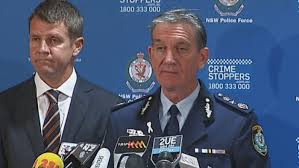


Posted November 30, -0001
The crisis communication strategies used by New South Wales Police in the Sydney Siege highlight how vital crisis communication planning is for any organisation.
 Two specific areas stood out for me. Firstly was the consistent updating of the NSW Police social media sites, particularly Twitter. By my calculations, their first Twitter post warning people to keep away from Martin Place was up within minutes.
Two specific areas stood out for me. Firstly was the consistent updating of the NSW Police social media sites, particularly Twitter. By my calculations, their first Twitter post warning people to keep away from Martin Place was up within minutes.
Then important information was added whenever there was anything new to report. This included one sentence tweets and Facebook posts, links to more detail including press conference footage, and re-tweets of important posts from other organisations. This is something any organisation should do in the midst of a crisis. While it may not be as public as this one, it’s vital that stakeholders are kept up to date.
Why is this so important?
With police themselves releasing so much information, there was less risk that the public or media would go elsewhere to get their information. In crisis situations where those directly involved don’t communicate quickly and regularly, people naturally look elsewhere for more information. This is often less credible sources or others who can only speculate.
The importance of having a message
In my media training sessions, I always highlight the importance of having a clear 3-point message for any media interview or event. That’s because it must be clear, concise, consistent and communicate in a way that can fit well with media formats.
NSW Police spokespeople did this well. In a nutshell, they all said something along the lines of: “Our hearts go out to the hostages and their families,”, “We are doing all we can to get them out,” and “Their safety is our number one priority”. While they answered whatever questions they could, all spokespeople fell back to these three message points.
This was a textbook response to a crisis from NSW Police. They should be congratulated.
For more information on my media training or crisis communication planning workshops, contact [email protected] or 029 200 8555.